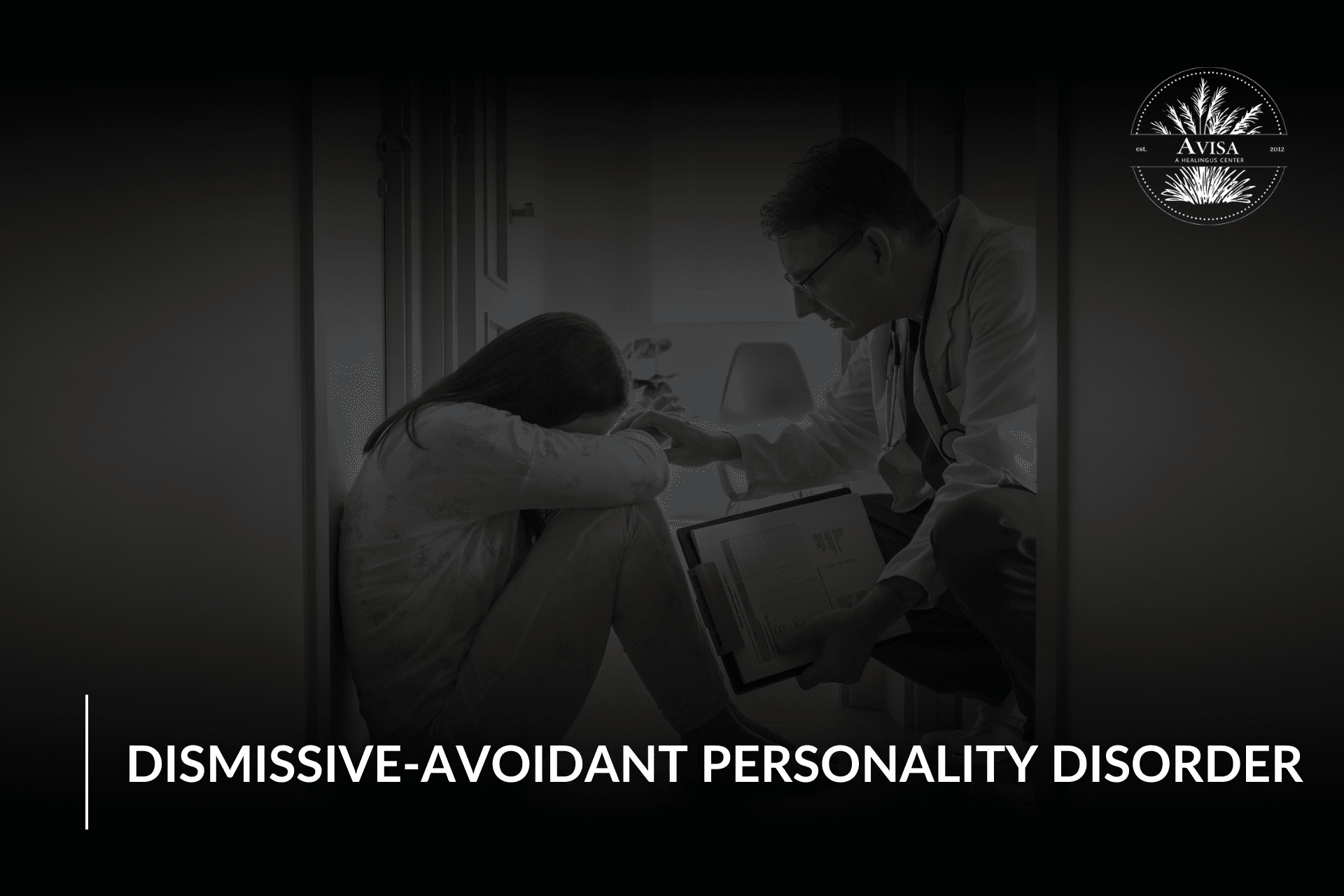Dismissive-Avoidant Personality Disorder (DAPD) is a complicated illness that influences the connection with others and one’s response to emotions. These people tend to detach themselves emotionally, seeming either neutral or disinterested in forming close relationships. This is not just a quirk but a deeply ingrained psychological state of mind that can significantly impair an individual’s well-being. Avisa appreciates the challenges tied to this disorder and has solutions for those seeking support.
What is Dismissive-Avoidant Personality Disorder?
The oppositional personality disorder typically embraces conflict and actively seeks it out. People exhibiting borderline personality disorder often exhibit unstable relationships, self-destructive behaviors, feelings of emptiness, and impulsive behaviors such as substance abuse or reckless driving.
Symptoms of Dismissive-Avoidant Personality Disorder
Knowing the signs of this condition is the essential first step toward understanding and solving it. Several common symptoms are:
- Emotional Distance: This involves shunning emotional merge by avoiding others so very much.
- Independence: A strong want to be self-sufficient often resulting in a dislike of dependent relationships.
- Avoidance of Vulnerability: Unwillingness to share personal feelings or experiences, even with family or close friends.
- Difficulty Trusting Others: Distrust for people and unwillingness to form intimate relations with them.
- Detachment in Relationships: Having relationships on the surface, without deep emotional attachment.
Causes of Dismissive-Avoidant Personality Disorder
Dismissive-Avoidant Personality Disorder is usually caused by early life experiences. These may include:
- Childhood Neglect: A lack of emotional support and nurturing during childhood can result in the development of avoidance behaviors, which are used as coping mechanisms.
- Traumatic Experiences: Exposure to traumatic events particularly at a very young age can cause one to fear vulnerability and emotional closeness.
- Inconsistent Caregiving: Erratic or inconsistent parenting can make a child grow up mistrusting others, hence leading to avoidant tendencies in adulthood.
Impact on Daily Life
Dismissive-Avoidant Personality Disorder has far-reaching implications on an individual’s everyday routines. Reluctance to engage emotionally may affect both personal and professional relationships. It can eventually lead.to a feeling of being isolated and loneliness, even when surrounded by others. Additionally, the constant need to maintain independence and avoid vulnerability can be exhausting, leading to stress and anxiety.
Treatment Options for Dismissive-Avoidant Personality Disorder
Avisa strives to offer a holistic approach to treating dismissive-avoidant personality disorder. We have comprehensive treatment plans that cater to the emotional, mental, physical, and spiritual needs of our clients. Following are some of the approaches we use:
- Therapy: Cognitive-behavioral therapy (CBT) can be helpful because it aids people in identifying and altering negative thoughts that perpetuate avoidance behaviors. Therapy is a reassuring place where one is free to experience their feelings while developing better ways of relating with others.
- Mindfulness Practices: Mindfulness activities can help people better recognize their feelings and develop strategies to manage them which can decrease the urge to avoid emotional intimacy and strengthen relationships.
- Group Therapy: Joining group therapy allows individuals suffering from Dismissive Avoidant Personality Disorder to realize they are not alone as this type of community offers support.
- Medication: Some patients may require medication as a form of coping mechanism for anxiety or depression which usually accompany Dismissive-Avoidant Personality Disorder.
Why Choose Avisa?
At Avisa, our concern is to provide all-inclusive and effective care that tackles the intricate nature of Dismissive-Avoidant Personality Disorder. We design customized treatment plans for you to reach lasting recovery and enhance your life. We strongly believe in a connected community of medical and clinical experts working together to give progressive care that evolves with new research and evidence-based practices.
Our approach is multidimensional as it covers the emotional, mental, physical, and spiritual aspects of an individual. We recognize that everyone is different; thus our treatment plans are designed accordingly. Whether you are looking for help for yourself or someone dear to you, Avisa will accompany you on this journey towards health.
Ready to help you reach a healthier and more satisfied life?
Dismissive-Avoidant Personality Disorder is a difficult condition but with appropriate support and therapy, individuals can learn how to handle their symptoms while forming healthy connections. At Avisa we have committed ourselves to taking care of patients who are struggling with this disorder by offering them the necessary support to overcome those challenges and achieve permanent recovery. If someone you know or yourself is suffering from Dismissive-Avoidant Personality Disorder, call on us today!
FAQs
Que: What pain does an avoider avoid most?
Ans: Well, loved ones’ criticism or judgment may hurt individuals having an avoidant attachment style the most possible since they are scared of being unlovable or inadequate. They find it challenging especially on issues such as their emotions and feelings which they do not consider their strong points.
Que: Can dismissive avoidants be manipulative?
Ans: It is common for a person with an avoidant attachment pattern to behave in other emotionally indifferent or manipulating ways when they feel vulnerable, or they just tend to withdraw from intimacy. This is because we are not at ease with closeness and emotional exposure.
Que: Are avoidants emotionally abusive?
Ans: Here is what I want you to know: those who demonstrate the avoidant attachment style do not necessarily have abusive tendencies. Not only does this stereotype severely damage the individuals who are trying so hard to fix themselves but it also makes light of their early experiences and desperate desire for connection.
Que: What scares Avoidants the most?
Ans: In summary, an avoidantly attached person often puts up active and ‘impenetrable’ boundaries around them to maintain their sense of self and prevent being rejected. They may even be unaware that deep down they have a fear of being alone since it has been severed at an early age.
Que: Do Avoidant Types act narcissistic?
Ans: There is substantial overlap between grandiose narcissism and avoidant attachment but persons displaying avoidant attachment do not always hold such views- thinking that they are special, superior, and entitled.










